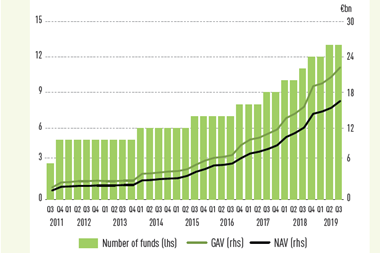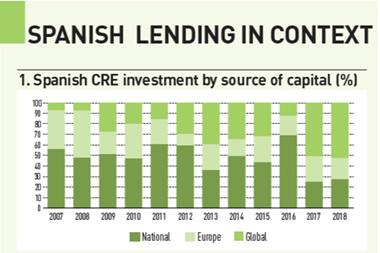Italian pension fund Inarcassa has made its first overseas real estate investments via a mandate with LaSalle Investment Management.
The investments – totalling €85m – were made in global unlisted real estate funds and are the Rome-based fund’s first abroad.
LaSalle is focusing on ‘core’ and ‘core-plus’ strategies for Inarcassa, Italy’s €7.5bn first-pillar pension fund for self-employed architects and engineers.
Paola Muratorio, president at Inarcassa, said the fund was aiming to make “new forms” of real estate investments outside its domestic borders.
LaSalle, she added, was chosen through a “beauty contest” including other international players.
LaSalle said 85% of the mandate had already been allocated by LaSalle, and that it expected the mandate to be fully committed by year-end.
Inarcassa has a history of investing in property “partly because of the inclination of its members”, Muratorio said last year.
“We always put quality before profitability and price,” she added.
Inarcassa last year allocated 10% of its overall assets to private equity, private debt and infrastructure projects and commodities.
Real estate, which does not fall into the ‘alternative’ portfolio, is at 20%.
In Italy, the fund has invested in Fabrica SGR.
Until last year, Inarcassa was focused on domestic real estate – a market it finds challenging.
“We will continue to invest in Italy, but it is a challenging market, no matter what expertise one has,” Muratorio told IP Real Estate last year.
She added: “Small assets of up to €30m in value, which we sometimes look at, are very often snapped up by very aggressive private players.
“We have also had some problems with assets that have been vacated by state agencies because of spending reviews.”
The fund’s board established that 20% of its real estate portfolio – or 4% of the overall portfolio – would be invested internationally.
Muratorio has previously said the fund will not invest in assets in need of refurbishment or intervention.
Inarcassa is targeting the hotel, retail and logistics sectors.
“Instead of office space, of which there is plenty, we’d rather have hotels that bring lower returns unless you find the right deal – and that’s what we’re looking for,” Muratorio said.
“For us, it’s about reaching the correct level of diversification.”















